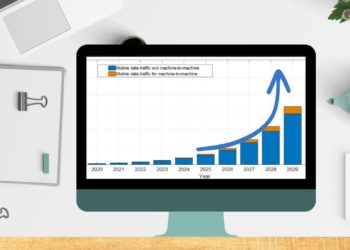Social media encompasses various digital platforms that foster interactive communities. Each platform offers unique functionalities tailored to different types of user interactions. For instance, Twitter is designed for sharing brief messages and media links, while Facebook serves as a comprehensive social networking site where users can share updates, images, and videos, join events, and participate in groups.
These platforms have revolutionized how individuals and businesses communicate and interact online. Social media marketing leverages these platforms to connect with target audiences and promote a brand’s products and services. Despite appearing modern, the fundamentals of social media marketing draw on timeless marketing principles.
Advantages of social media marketing
Targeted advertising for precise reach
Social media excels in targeting demographics via robust analytics. Platforms refine content delivery based on age, location, interests, and online behavior, maximizing marketing impact.
Interactive engagement through comments, likes, shares, and messages builds community, enhancing brand connection.
Building relationships through social media
Social media’s essence lies in two-way communication. Beyond broadcasting, it fosters meaningful dialogue, strengthening brand-audience relationships.
Engagement (comments, likes, shares) provides insights into customer preferences, guiding product/service adaptations. Real-time interaction humanizes brands, fostering approachability.
To begin boosting your engagement and growing your platform, explore the best sites to buy Instagram followers and purchase a package that can provide a great foundation for brand growth. By doing so, your social media strategy can gain momentum and you can simply and easily connect with even more potential customers who will then go on to spread the word about your business
Compared to traditional channels, social media offers cost-effective options with high ROI potential. Targeted ads on platforms optimize spending, with real-time tracking enabling swift adjustments.
Credibility and trust
Authentic, transparent communication on social media humanizes brands, enhancing trust. Positive customer experiences shared via reviews and user-generated content bolster credibility.
Insightful data analytics
Social media analytics provide vital metrics (engagement, reach, conversion rates) for informed decision-making. Understanding audience behavior optimizes content strategies and resource allocation.
How to track social media metrics
Tracking social media metrics is crucial for evaluating the effectiveness of strategies and making informed adjustments. Metrics provide insights into audience behavior and engagement, helping refine content and campaigns.
Key Metrics to Track:
Social media followers
Marketers often dismiss follower count as a vanity metric, emphasizing engagement over sheer numbers. However, for expanding networks and increasing reach, follower count remains relevant, especially across multiple platforms.
Follower growth
social media monitoring follower growth indicates trends and engagement levels. Consistent growth validates marketing efforts, while stagnant growth may signal a need to refocus efforts on more promising platforms.
Social media mentions
Tracking mentions gauge brand awareness and audience engagement, providing insights into content performance and customer sentiment. Monitoring competitors’ mentions can also inform market strategy.
Brand sentiment
Sentiment analysis identifies public perception of your brand through social media interactions, highlighting areas for improvement or celebration based on positive or negative feedback.
Top influencers
Influencer impact on social media can rapidly expand audience reach and credibility, often more cost-effective than traditional advertising. Utilize social media monitoring tools to identify key supporters and optimize campaigns.
Top engaging social channels
Measuring engagement beyond likes and retweets, such as website traffic and visitor behavior, reveals the quality of social media-driven interactions and their potential for conversions.
Top referring social channels
Identifying which platforms drive the most effective traffic to your website informs resource allocation and strategic decisions to optimize social media ROI.
Top converting social channels
Channels that directly contribute to conversions, particularly sales, demonstrate tangible return on social media investment, guiding content and channel prioritization.
Total social media conversions
Aggregating all social media-driven conversions provides a comprehensive view of marketing effectiveness and contribution to overall business goals.
Revenue from social channels
Directly linking social media efforts to revenue generation showcases the financial impact of social strategies, crucial for demonstrating ROI to stakeholders.
Conclusion
Social media marketing combines traditional marketing principles with innovative digital strategies, providing unmatched chances to engage audiences and expand brands. By harnessing the distinctive benefits of social media, businesses can enrich their marketing endeavors, achieve superior ROI, and cultivate more robust, engaged communities.
Monitoring and evaluating social media metrics guarantee ongoing enhancement and alignment with business objectives, establishing social media as a crucial element of modern marketing strategies.











































































